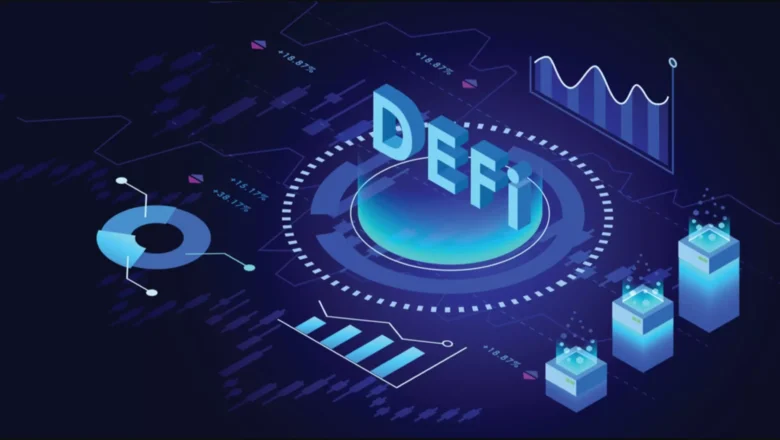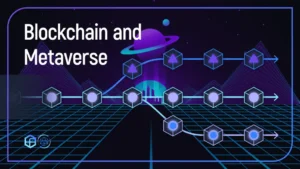Cryptocurrency and financial technology (FinTech) are two of the most disruptive forces in modern-day finance. Both have challenged traditional systems, pushing the boundaries of what is possible in terms of efficiency, accessibility, and innovation. Now, their convergence has ushered in a new era of decentralized finance (DeFi), a financial movement that has the potential to redefine global economic structures. This article explores how the union of crypto and FinTech is shaping decentralized finance, its benefits, challenges, real-world applications, and what the future holds for this groundbreaking shift.
The Convergence of Crypto and FinTech
Though they once operated on parallel tracks, cryptocurrency and FinTech have increasingly intertwined. FinTech platforms capitalize on technology to drive innovation in banking, lending, payments, and asset management, while cryptocurrencies like Bitcoin and Ethereum offer decentralization, transparency, and borderless transactions powered by blockchain technology. Together, they create a hybrid ecosystem where financial inclusion meets cutting-edge innovation. The result? Secure, personalized, and cost-efficient financial services available to more people and businesses than traditional systems could have imagined.
For example, digital wallets like PayPal and Square, once known for facilitating fiat transactions, are now integrating cryptocurrency functionalities. These platforms allow users not only to store and spend cryptocurrencies but to also invest in them. Meanwhile, decentralized exchanges (DEXs) like Uniswap enable users to trade cryptocurrency assets directly with one another, removing intermediaries from the equation.
Benefits of Decentralized Finance
Decentralized finance is more than just a buzzword; it represents a monumental shift in how we view and interact with financial systems. Here are some of its core benefits:
- Improved Accessibility: DeFi breaks down barriers for unbanked and underbanked populations worldwide. With nothing more than a smartphone and internet connection, anyone can access banking services, loans, and investments.
- Transparency and Trust: Blockchain-based platforms ensure complete transparency. Every transaction is recorded on a public ledger, significantly reducing fraud and corruption while increasing user trust.
- Cost-Saving Efficiency: By eliminating intermediaries such as brokers and banks, DeFi reduces transaction fees, making financial activities more affordable for end users.
- Customization and Ownership: Users have more control over their financial assets. With decentralized wallets, for instance, individuals hold their private keys rather than relying on banks for safekeeping.
- Global Interconnectivity: Without geographical restrictions, DeFi enables cross-border payments and investments, unlocking new economic opportunities for businesses and individuals alike.
Challenges and Risks
While the promises of crypto and FinTech’s union are intriguing, the path to widespread adoption is not without obstacles. Some key challenges include:
- Regulation Uncertainty: Governments and global financial institutions have yet to fully define how decentralized systems should be regulated. Without clear guidelines, projects in this space often face scrutiny, fines, or shutdowns.
- Volatility and Risk: The value of many cryptocurrencies fluctuates wildly, posing financial risks for users and businesses relying on DeFi assets for transactions or investments.
- Cybersecurity Threats: While blockchain is inherently secure, vulnerabilities do exist. Hacks on DeFi projects and wallets have resulted in significant financial losses.
- Limited User Knowledge: Many potential users are still hesitant due to a lack of understanding or fear of the unknown. Bridging the knowledge gap is critical for broader adoption.
- Scalability and Energy Concerns: Current blockchain networks like Ethereum are grappling with scalability and energy efficiency issues, though advancements like Ethereum 2.0 aim to address these limitations.
Real-World Applications
DeFi is no longer confined to niche corners of blockchain enthusiasts; its applications are taking over various industries, powering next-generation financial ecosystems. Here are a few examples:
- Lending and Borrowing: Platforms like Aave and MakerDAO allow users to earn interest on their assets or borrow funds while using cryptocurrency as collateral, all without requiring credit checks.
- Remittances and Payments: Blockchain-powered cross-border payment platforms such as Ripple and Stellar provide faster, cheaper alternatives to traditional remittance services, particularly useful for migrant workers sending money home.
- Tokenized Assets: By turning physical assets like real estate or art into “tokens,” decentralized marketplaces allow for fractional ownership. Platforms like RealT make property ownership accessible to more people.
- Insurance: Companies such as Nexus Mutual are revolutionizing the insurance industry with blockchain-based products for decentralized risk-sharing, offering transparency and trust like never before.
- Decentralized Autonomous Organizations (DAOs): These organizations enable individuals from across the globe to collaborate, vote, and share profits entirely through codified blockchain governance.
The Future of Crypto and FinTech
The future of crypto and FinTech lies in their continued convergence, paving the way for an evolved decentralized financial ecosystem. Blockchain-based identity verification systems could enhance online security and remove barriers to accessing global financial tools, further democratizing wealth-building opportunities. Institutions are also expected to invest more deeply in crypto technology as they explore stablecoins and central bank digital currencies (CBDCs) to modernize monetary systems.
Additionally, advancements in scalability, such as the adoption of Layer 2 solutions (like Optimism and Arbitrum), promise faster transactions and reduced costs. This will likely make DeFi platforms more accessible to mainstream users. The future also holds more partnerships between governments, corporations, and decentralized platforms to address pressing issues of regulation and network security. Interoperability among blockchains is expected to improve, enabling seamless transactions across different decentralized financial systems without the need for multiple wallets or platforms.
Empower Your Financial Future
Crypto’s integration with FinTech signals a historic evolution in finance, designed to empower individuals, businesses, and even entire economies. By breaking down traditional barriers, decentralized finance offers a future of inclusivity, efficiency, and innovation. While challenges in adoption and regulation remain, the ongoing developments in blockchain technology and its applications suggest a long-lasting transformation in the financial world.
Whether you’re a business professional curious about how DeFi can streamline operations, or an individual excited to invest in the future of finance, staying informed and proactive is essential. With new tools and insights emerging every day, there has never been a better time to explore the possibilities that crypto and FinTech can offer.
FAQs
1. What is the difference between FinTech and DeFi?
FinTech refers to technological innovations in financial services, often under centralized control. DeFi is a subset that leverages blockchain to decentralize financial operations.
2. Is DeFi safe to use?
While DeFi platforms offer transparency, users must remain cautious of risks such as volatility and hacks. Due diligence is essential.
3. How can businesses benefit from decentralized finance?
DeFi can improve efficiency, enable global transactions, reduce intermediary fees, and unlock new revenue streams through innovative blockchain-based applications.
4. Will governments allow DeFi to grow?
Regulation will play a significant role in DeFi’s growth. Governments worldwide are exploring frameworks to ensure the safe and lawful adoption of decentralized systems.
5. How can I start using DeFi?
Begin with a reliable digital wallet like MetaMask, and explore beginner-friendly platforms like Uniswap or Aave. Always start small until you fully understand the landscape.



